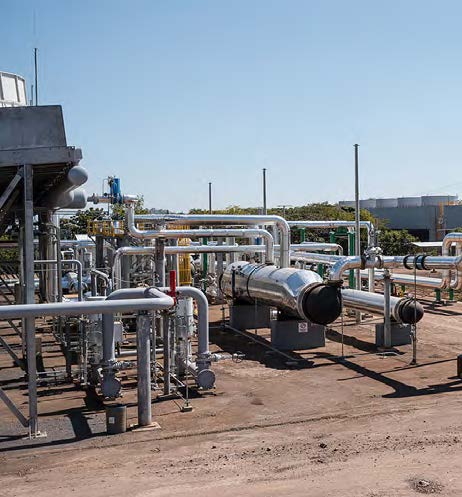At Polaris, addressing climate change is a core part of our mission to generate renewable energy across all operations and future acquisitions. Through our efforts, we actively support third-party decarbonization goals by producing clean energy, helping reduce CO2 emissions by approximately 345,923 tons to date.
Resource efficiency is a key focus of our strategy. While we have not yet implemented a formal emissions reduction strategy, we have introduced several initiatives over the years that address energy consumption, fuel use, and waste management, all contributing to a reduced carbon footprint. Currently, 99% of the energy used in our operations is sourced from self-generated renewable energy, with the remaining 1% purchased from the national grid in the countries where we operate.
Since 2022, we have measured our carbon footprint according to the ISO 14064 standard16, expanding the scope of emissions measurement in 2023 and 2024 to include all facilities for scope 1 and scope 2. Additionally partial scope 3 measurement were carried out in Nicaragua, Ecuador and Peru.
In Nicaragua, where we have implemented energy efficiency initiatives since 2015, we have achieved a 63% reduction in energy consumption from the national grid, a 33% reduction in fuel consumption, and a 38% decrease in hazardous waste generation, resulting in an overall 43%18 reduction in emissions. However, in 2024, energy consumption increased due to weather conditions and disturbances in the national power grid.
For 2024, the carbon footprint, including scope 3, resulted in 1162.6 tCO2 (excluding biogenic emissions)21, with the breakdown between Scope 1 and Scope 2 emissions as
follows:
Moreover, since 2022, reducing emissions has been a key material issue in our Sustainability Strategy. We set a target to offset our Scope 1 and 2 emissions by 2024, compensating for our 2023 carbon footprint. We are pleased to report that we have met this goal by offsetting 696 tons of CO2
.





